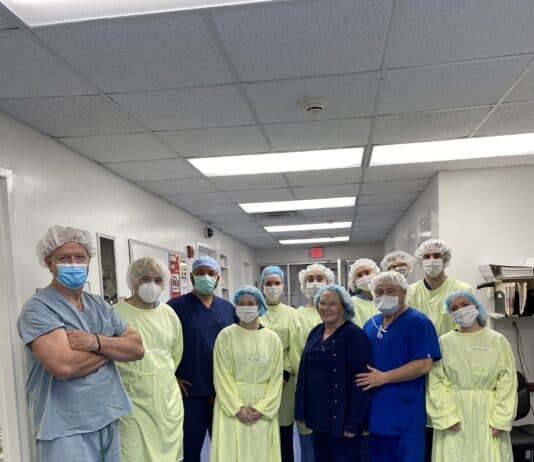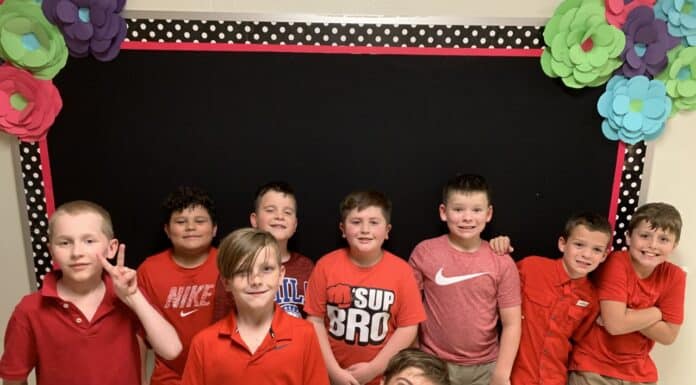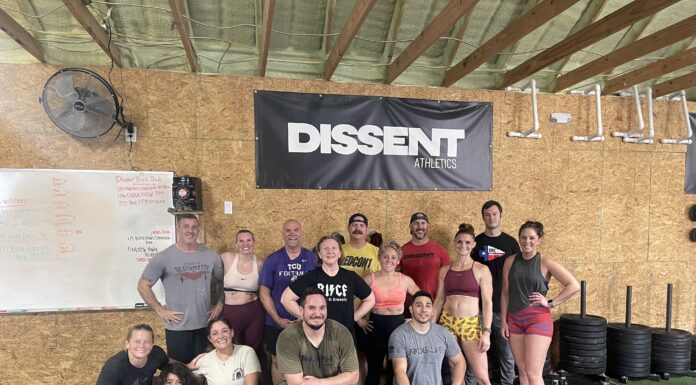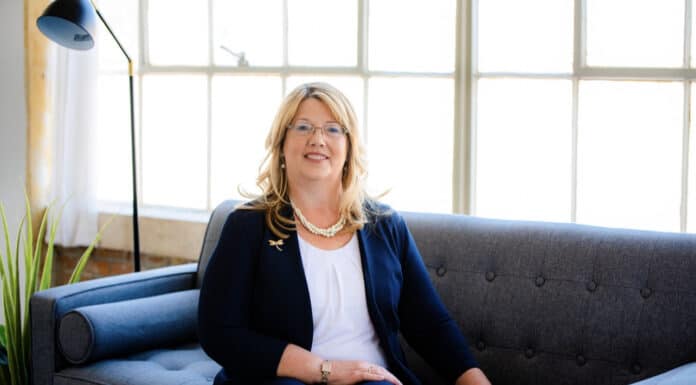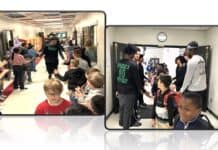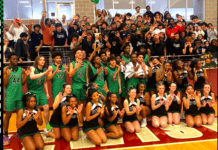BY DIANE SMITH AND MONICA S. NAGY
Their lives have always been on the grid, their digital fluency a matter of course. A world without smartphones, tablets and Google maps: unthinkable. {{more}}
They have never known life without school shootings, war, security lines in airports or deep political divisions.Texas educators are relearning how to teach with the Class of 2018. Experts, marketers and the media are trying to define them.?We are not the ?me, me, me? generation. Some of us are wild and crazy,? said Colin Butler, 14, of Mansfield Lake Ridge High School. ?We are just a mixture of the generations before us.?The teenagers sometimes called Generation Z, Gen Z or Post Millennials are facing pronounced pressure in Texas this fall to figure out the future, and fast. New state education rules require incoming freshmen to start the school year with specific plans of coursework already geared to their eventual careers.They will be the first to graduate under the requirements of the education bill passed by the 2014 Legislature, House Bill 5.More than 300,000 are entering Texas high schools this year, according to the Texas Education Agency?s enrollment figures for last year.They are part of the next wave, a group that has never known a world without instant access.
?Really motivated?
Statistics tell the story of immersion in technology for teens born around 2000:
? Twenty-five percent are checking email, text and social media within five minutes of waking, according to Wikia, a collaborative media company.
? Thirty-nine percent have sent or posted sexually suggestive texts or emails, according to GuardChild, a company that sells digital monitoring software.
? Forty-six percent of 12- to 24- year-olds said they use Snapchat, and 53 percent have accounts on Instagram, according to Edison Research and Triton Digital.
? Seventy-six percent think their technology skills will help them reach their goals, according to the Wikia study.
?We have a lot of technology that helps us learn better. We were born in 2000 ? the new century,? said Marisa Echtle, 14, a Kennedale High School freshman.
A consistent media diet of violence also shapes their world.
?Generation Z is really motivated to make a difference in the world,? said Samra Bufkins, a lecturer in the Mayborn School of Journalism at the University of North Texas. ?? Maybe it?s from sitting in kindergarten classrooms and watching airplanes crash into buildings.?
Bufkins, who developed the first social media class at UNT, has spoken on many topics that affect tweens, teens and Millennials.
Daniel Monks, a 15-year-old freshman at Paschal High School in Fort Worth, said the 9-11 attacks, shootings at Sandy Hook Elementary and wars in Iraq and Afghanistan were the news as he grew up.
?Seeing all the bad things that happen made me realize that the world is not perfect,? he said.
He said he and his friends don?t watch the daily news but when something big happens, such as the Sandy Hook shooting, they feel compelled to contribute by posting their thoughts and views on social media.
Even at 14, Marissa Ling, a freshman at Mansfield Lake Ridge High School, knows there is more to life than sending text messages.
?If you help the community, then the community will succeed,? said Ling. ?And if the community succeeds, then the nation will succeed. And if we help others, it makes you feel better because you?re given a life to live but if you are not inspiring others, you?re not living life.?
Who are they?
Mapping generations is not an exact science. Birth years vary from expert to expert. For example, some describe Millennials as those born from 1976 through 1994, others from 1982 to 2000.
?The edges are squishy and the dates are squishy,? said Melanie McGee, director for corporate relations for the College of Business at the University of Texas at Arlington. McGee studies generational differences and says understanding them helps in the workplace, where various generations come together every day.
People often resemble their times more than their parents, she said, particularly this group.
?They are known as digital natives,? McGee said. ?They don?t know what it is like not to have smartphones and tablets and iPhones.?
Some worry that too much free access to social media creates a highly sexualized culture that is also desensitized to violence, she said.
Parents, lawmakers and educators have grappled with how to better monitor teens and their high-tech ways, including the practice of sexting, or sending sexually explicit text messages. In 2011, Texas lawmakers passed a law that requires school districts to make sexting-prevention programs available on a yearly basis.
Minors who send, promote or possess nude pictures could be charged with a Class C misdemeanor.
Teaching the future
Teaching the digital native has been on the education radar awhile. The Arlington school district uses Google Apps and a teaching method called ?flipped learning.?
Instead of doing written homework, flip teaching has students watch online videos at home, then work out what would have been the homework with the guidance of the teacher and classmates.
Barry Fox, director of instructional technology for Arlington schools, disagrees with the digital native label.
?Oftentimes it?s said that our students are digital natives. That?s because the Gen Z kids have been surrounded by technology their whole lives, but they don?t come to us with a thorough understanding of how to apply this technology they are using. I would call them ?media natives,? ? said Barry Fox, director of instructional technology for Arlington schools.
The district is giving students Dell Latitude tablets at Arlington Collegiate High School, to use in the classroom and take home.
?Kids are getting devices at home younger and younger, and that?s not a bad thing, but there need to be clear guidelines,? Fox said. ?There?s also a socioeconomic factor there and we don?t want to place emphasis on those that have and those that don?t.?
At Mansfield high schools, students can take part in either the iPad High School Initiative or the Bring Your Own Device Initiative.
At many districts, teachers post their classroom assignments online, and students get text alerts of deadlines for homework or projects.
?They are still kids?
Shelly Butler, principal at Mansfield Legacy High School, said changes in standardized testing also reflect how education is evolving with the new generation. The old TAKS tests asked questions with answers that reflected minimum skills. The STAAR tests ?up their game,? Butler said, calling for higher levels of thinking.
Classrooms have also embraced teamwork to encourage the exchange of ideas. Butler said the notion that the best learning takes place in a quiet classroom is gone.
?Getting kids to talk more leads to deeper learning,? Butler said.
There were 606 freshmen at Mansfield Legacy High the first week of school, most of them ready to tackle new expectations, Butler said. Most had already picked their endorsements, similar to major areas of study in college and required by HB 5, last spring in eighth grade.
While they are growing up in a fast-paced technological landscape with high academic expectations, Butler still sees an innocent side.
?They still need a map to get around,? Butler said. ?They are still kids.?
Diane Smith, 817-390-7675 Twitter: @dianeasmith1 Monica S. Nagy, 817-390-7792 Twitter:@MonicaNagyFWST






